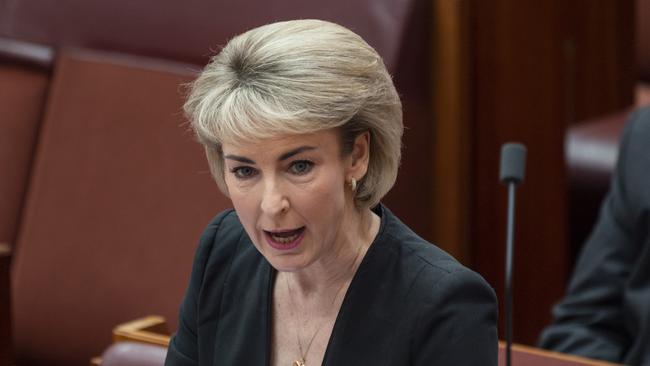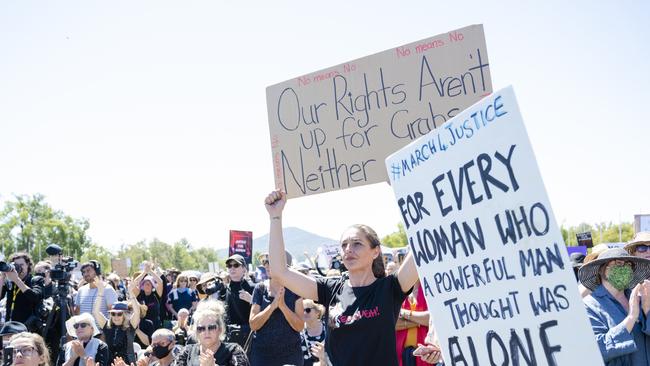
She occasionally opens up about some of the detail but understandably is still guarded, despite the passing of time since that sunny Saturday afternoon when she threw everything she owned independently of him into the back of her car and just drove.
I’ve asked many times: when did she realise things weren’t right? When she knew that it was control, not care in his actions; that it was jealously, not concern for her in his words that constantly undermined her sense of self-worth? She’ll say to this day that it’s almost impossible to pinpoint the exact moment that she saw things for what they were.
Why does she think she’s a cliche? Because even then, even after being shoved into a wall and told it was her fault for making him angry, even as an accomplished professional with a strong social network, a loving, supportive family and a confident and self-assured way of carrying herself, she had no idea how to leave.
She doubted that anyone would believe her. For a time she defended him and blamed herself. And there was the crippling, suffocating shame.
Would legislation on coercive control have helped this woman and the scores like her? I’m not sure. But it’s a question I’m grappling with as this conversation unfolds around us, and it’s an important one. I think of her every time the subject comes up.
Two weeks ago, Attorney-General Michaelia Cash announced the federal government had set a deadline of early next year to define, in a legal sense at least, what coercive control meant.
What an Everest to climb. How to define legally something so insidious, something that by its nature operates in the shadows? Oh, things like limiting access to money and clear evidence of physical abuse, they’re the tangibles that are easy to identify, but even so, how to prove the moment that a crack in a wall began to form, and why?
Don’t get me wrong, I think this legislation is important and even the conversation about it is long overdue. As with mental health, just talking about this issue openly and frankly is an important, powerful first step in bringing it out of the shadows and into the light.
But it’s just one piece of the building. Like trying to put the roof up when you’ve not yet started work on the walls.

I say this because if you’ve been close to someone who has managed to escape the kind of relationship we’re talking about here, then you’ll know what I do. That it starts slowly, almost inoffensively. You’d know these behaviours, the control, the undermining, the separation from family and friends, are rarely if ever obvious at first, and often not for months and sometimes even years.
Maybe it’s the way she’s spoken to, harshly but under the guise of humour. Those around her detect a faint loss of confidence; have watched her drift from family and friends, constantly “busy” in a nebulous kind of way. The way she seems afraid to contradict him.
All of these things are woven into a tapestry long before a person even thinks about going to a lawyer, let alone processes what that looks like in isolation, let alone the personal, emotional and relationship avalanche it will trigger. The laws in this space are important, but what are we doing to stop the fire from being lit in the first place?
In the myriad social issues included in formal education these days, do we talk about the signs and how to spot them? Is there space for that? I don’t mean another battle in the tiresome war on men. What I mean is equipping young people to spot the signs and have the hard conversations. I say young people because while the statistics overwhelmingly tell us that women are most at risk, men can be and often are the victims of coercion and control. To deny this is to deny truth.
The federal government will take advice from 16 experts in dealing with this issue. I hope they are experts whose experience is lived, not just studied. Theory never trumps practice.
The Attorney-General is correct in saying that coercive control raises issues of law and policy that are hugely complex. Even more so, the intangible issues of heart. Emotion. Issues of human nature. Issues beyond definition in law and in verse. This is where the true complexity of this issue lies. Understanding that will be the key.
Gemma Tognini is executive director of GT Communications.




There’s a person I know well who would describe herself as the embodiment of every cliche you’ve heard about women escaping a long-term, highly controlling relationship. Sometimes she’ll use the word abuse, but not always because, as she once said to me, he got physically violent only that one time. As if that somehow meant it didn’t count.